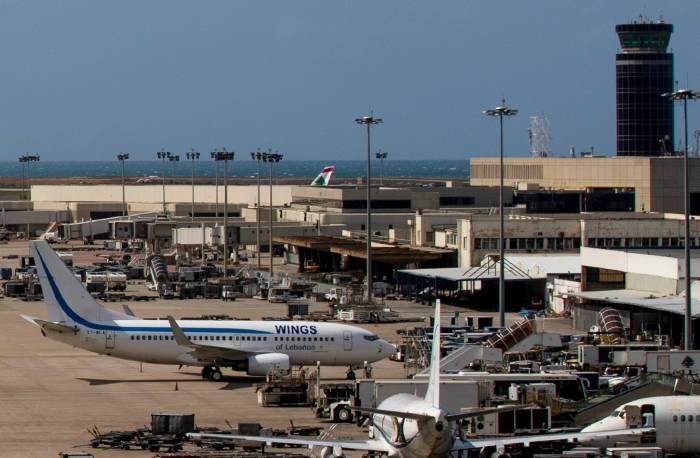Iran barred Lebanese planes from repatriating dozens of Lebanese nationals stranded in Iran on Friday, in response to Lebanon’s refusal to let an Iranian flight touch down at Beirut’s Rafik Hariri International Airport, following what Tehran described as an illegal Israeli threat.
Lebanon blocked the flight Thursday following a statement by the IDF that Iran’s Islamic Revolutionary Guard Corps was using civilian flights to smuggle cash to Hezbollah. The IDF said it would use “all the tools at its disposal” to enforce a truce that requires Lebanon to halt arms transfers to the Iran-backed terror group.
Beirut’s move elicited protests by the Iran-backed terror group, a minor partner in the new Lebanese government.
Iran said Friday that it would forbid Lebanese flights to land until its own flights were cleared to land in Beirut.
The standoff has left dozens of Lebanese citizens stranded in Iran for three days after attending a religious pilgrimage. They had been due to return to Beirut on Iran’s Mahan Air before Lebanon barred the plane from landing.
Baghaei condemned what he said were Israel’s “gross and continuous violations of the principles and rules of international law and violations of Lebanon’s national sovereignty.”
He also called for the International Civil Aviation Organization and other world bodies “to stop Israel’s dangerous behavior against the safety and security of civil aviation.”
Lebanon’s Directorate General of Civil Aviation said on Thursday it had “temporarily rescheduled” some flights, including from Iran, until February 18 as it was implementing “additional security measures.”
That date coincides with the deadline for Israel’s withdrawal from southern Lebanon under the November 27 ceasefire agreement with Hezbollah. The withdrawal deadline had been pushed off from January 26. Israel is reportedly seeking to extend its stay in certain areas past the deferred deadline.
During the nearly 14 months of fighting war ended with the ceasefire, Israel repeatedly accused Hezbollah of using Lebanon’s only airport to smuggle arms from Iran.
In September, Lebanon’s transport ministry ordered an Iranian aircraft not to enter its airspace after Israel warned air traffic control at Beirut airport that it would use “force” if the plane landed.
The ceasefire required Hezbollah to vacate southern Lebanon, and let Israel act against imminent threats by the terror group. On Friday, Israel struck what it said were Hezbollah weapon caches in south Lebanon.
The war was sparked when Hezbollah, unprovoked, began attacking Israel on a near-daily basis on October 8, 2023 — a day after fellow Iran-backed group Hamas stormed southern Israel to kill some 1,200 people and take 251 hostages. The war with Hezbollah displaced some 60,000 residents of northern Israel.
